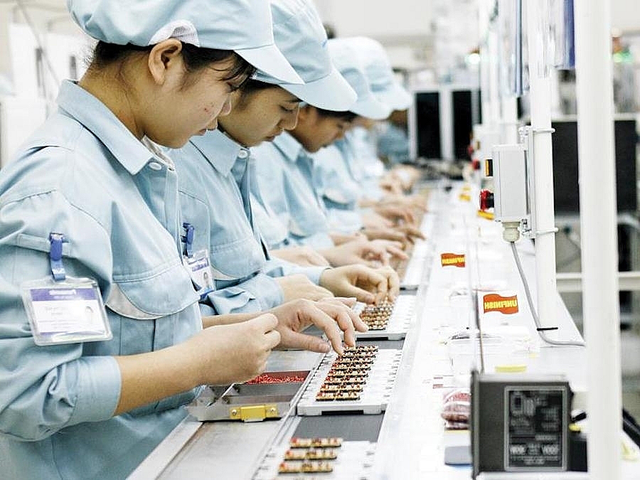HSBC: Viet Nam turns itself into rising star in global supply chains
VGP - Viet Nam has turned itself into a rising star in global supply chains, gaining substantial global market share in such sectors like textiles, footwear and consumer electronics, according to a report released by the HSBC.

Since Viet Nam's Doi Moi reforms in 1986, industrial parks have been set up across the country, attracting investors with preferential tax incentives and an abundance of relatively cheap and productive labor, the HSBC noted.
New FDI has been flowing into the country since the 2010s, with the lion's share concentrated in the manufacturing sector, consistently accounting for 4-6 percent of GDP.
Much of the investment initially entered the low value-add textile and footwear space; however, Viet Nam has climbed up the value chain over the years, growing into a key manufacturing hub for electronics products in the last two decades.
According to the HSBC, electronics exports reached a record high of US$100 billion in 2021, accounting for over 30 percent of Viet Nam's total exports. Just 20 years ago, the share was only 5 percent.
Much of the success in tech is thanks to Samsung's multi-year FDI in Viet Nam, which started in the late 2000s.
With an investment of around US$18 billion over the years, Samsung now has eight factories and one R&D center in Viet Nam, including two smartphone factories, producing half of the company's smartphones and tablets.
The success of Samsung has led to other tech giants, such as Google and LG, shifting their supply chains to Viet Nam.
Even though the process was partially disrupted by COVID-19, FDI inflows have remained remarkably resilient, in particular related to Apple-connected production.
For example, two Apple suppliers, Pegatron and Foxcon
HSBC believes Viet Nam's competitive FDI regime and sound macro fundamentals should continue to attract quality FDI, which is key in helping the economy move up the value chain.
Its tech ambition is far from just being a low-end manufacturing hub, however, which means more reforms, including upskillingthe workforce and improving infrastructure quality, are need to grasp the opportunities.
The HSBC underscored that, total FDI to ASEAN-6 including Singapore, Malaysia, Indonesia, Thailand, Viet Nam and the Philippines has average nearly US$127 billion per year since 2010, approximately three times more than the average over the previous decade.
